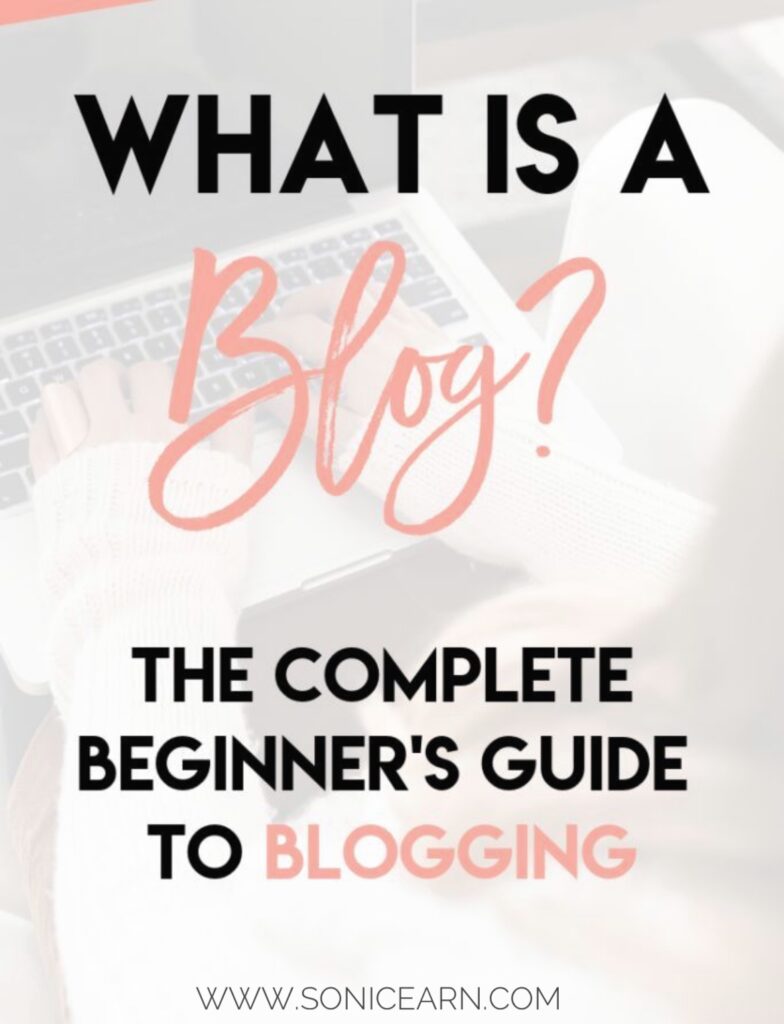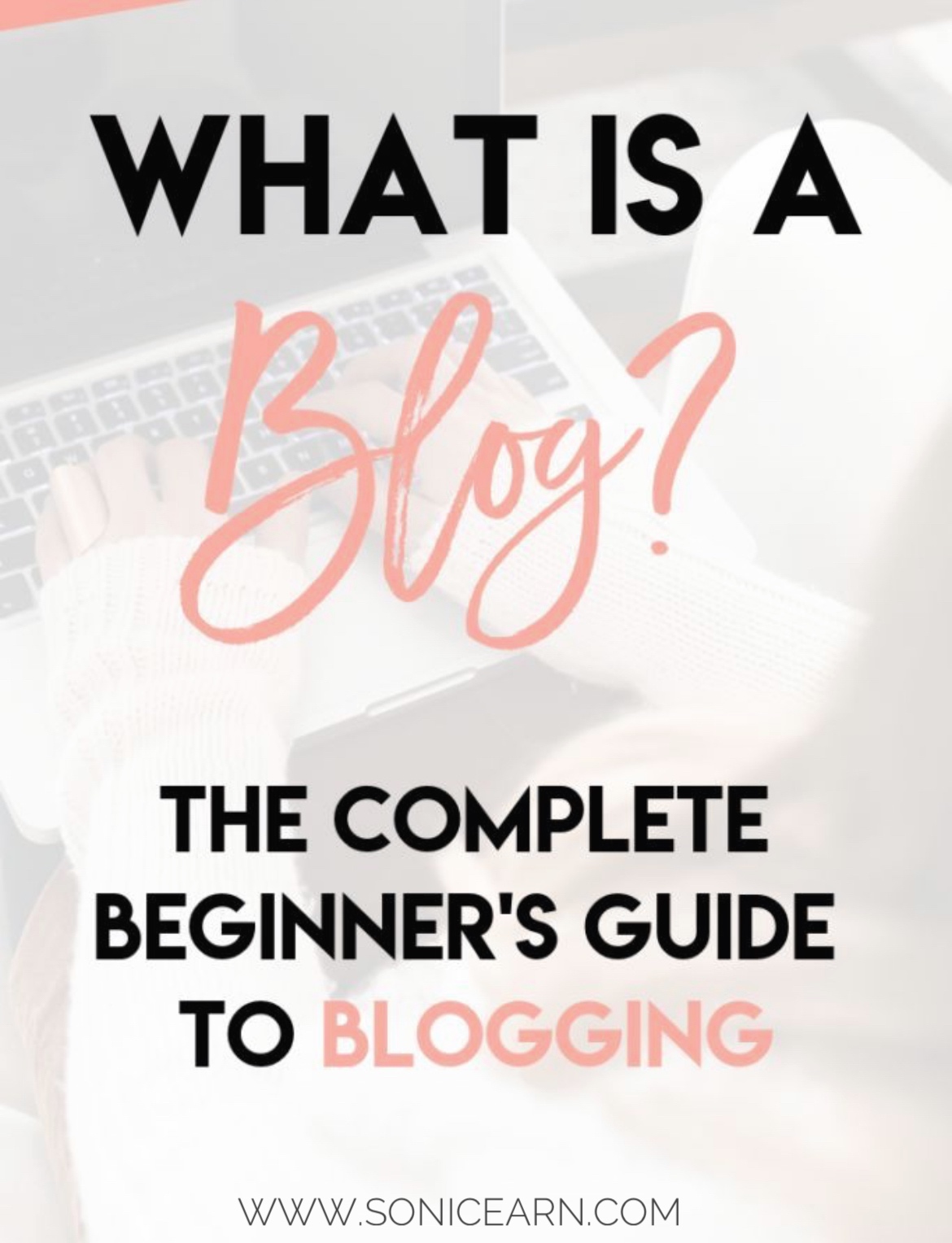Confused by blogging jargon? Discover the top 20+ blogging terms every beginner must know to start and grow a successful blog in 2025.

If you’re stepping into the world of blogging, you’re likely to come across terms like “SEO,” “backlinks,” or “domain authority” and wonder what they mean. Don’t worry — we’ve got you covered! In this post, we’ll break down all the blogging terms every beginner must know so you can start your blogging journey with clarity and confidence.
1. Blogging Terms Every Beginner Must Know: Blog
Let’s start with the basics. A blog is a type of website or a section of a website where content is regularly updated, typically in the form of articles or posts. Blogs can be personal, professional, niche-specific, or for businesses.
2. Blogging Terms Every Beginner Must Know: Niche
Your blog’s niche is its central theme or subject. Whether it’s food, travel, technology, fashion, or finance, selecting a niche helps you attract a targeted audience and build authority.
3. Blogging Terms Every Beginner Must Know: Domain Name
A domain name is your blog’s web address (e.g., sonicearn.com). It’s what users type into their browser to access your site. Choose a domain that reflects your niche and is easy to remember.
4. Blogging Terms Every Beginner Must Know: Hosting
Web hosting is the service that stores your blog’s files and makes them accessible on the internet. Some popular hosting providers include Bluehost, SiteGround, and Hostinger.
5. Blogging Terms Every Beginner Must Know: CMS (Content Management System)
A CMS allows you to create, edit, and manage blog content without needing to code. WordPress is the most widely used CMS in the blogging world due to its flexibility and ease of use.
⸻
6. Blogging Terms Every Beginner Must Know: SEO (Search Engine Optimization)
SEO refers to techniques used to improve your blog’s visibility on search engines like Google. It involves optimizing content with keywords, improving site speed, and getting backlinks.
⸻
7. Blogging Terms Every Beginner Must Know: Keywords
Keywords are specific words or phrases users type into search engines. Including relevant keywords in your blog helps improve its chances of appearing in search results. For example, this blog uses the keyword: “Blogging Terms Every Beginner Must Know.”
⸻
8. Blogging Terms Every Beginner Must Know: Permalink
A permalink is the permanent URL of your blog post. It should be short, include your main keyword, and be SEO-friendly. Example: www.yoursite.com/blogging-terms-beginners
9. Blogging Terms Every Beginner Must Know: Backlinks
Backlinks are links from other websites that point to your blog. Search engines see them as votes of confidence, helping boost your SEO and authority.
10. Blogging Terms Every Beginner Must Know: Meta Description
A meta description is the short text that appears below your blog title in search results. It summarizes your content and should include your focus keyword to improve click-through rates.
11. Blogging Terms Every Beginner Must Know: Alt Text
Alt text (alternative text) is used in image tags to describe images. It helps visually impaired users and boosts SEO by helping search engines understand the image content.
⸻
12. Blogging Terms Every Beginner Must Know: Bounce Rate
Bounce rate measures how many visitors leave your site after viewing only one page. A high bounce rate can indicate that your content or website layout needs improvement.
13. Blogging Terms Every Beginner Must Know: CTA (Call to Action)
A CTA is a prompt that encourages users to take action — such as “Subscribe Now,” “Read More,” or “Buy Today.” Effective CTAs help improve engagement and conversions.
14. Blogging Terms Every Beginner Must Know: Monetization
Monetization refers to the methods used to earn money from your blog. Common strategies include displaying ads, affiliate marketing, selling digital products, or offering paid subscriptions.
⸻
15. Blogging Terms Every Beginner Must Know: Affiliate Marketing
Affiliate marketing is a way to earn a commission by promoting other people’s products. You earn a percentage when someone makes a purchase through your referral link.
⸻
16. Blogging Terms Every Beginner Must Know: Anchor Text
Anchor text is the clickable text in a hyperlink. For example: Learn more about SEO. Using relevant anchor text helps with internal linking and improves SEO.
⸻
17. Blogging Terms Every Beginner Must Know: Categories and Tags
These help organize your blog content.
• Categories are broad topics (e.g., Blogging Tips, SEO).
• Tags are more specific keywords related to a post.
⸻
18. Blogging Terms Every Beginner Must Know: Sitemap
A sitemap is a file that lists all your blog’s pages. Submitting your sitemap to search engines helps them index your content more efficiently.
⸻
19. Blogging Terms Every Beginner Must Know: Plugin
A plugin is a tool that adds extra features to your blog. For example, Yoast SEO helps with on-page SEO, while WP Super Cache improves site speed.
⸻
20. Blogging Terms Every Beginner Must Know: SSL Certificate
An SSL certificate makes your website secure (https://). Google favors secure websites, and having SSL builds trust with your readers.
⸻
Final Thoughts on Blogging Terms Every Beginner Must Know
Understanding these blogging terms every beginner must know is essential if you’re serious about building a successful blog in 2025 and beyond. These terms form the foundation of blogging, SEO, and content creation. With this knowledge, you’ll be better equipped to grow traffic, engage readers, and monetize your blog efficiently.

